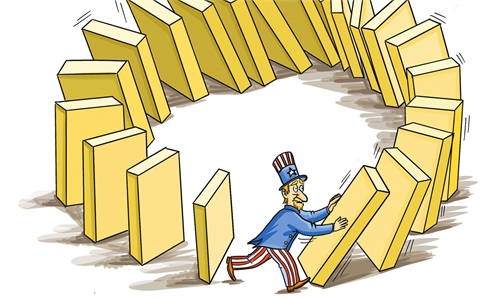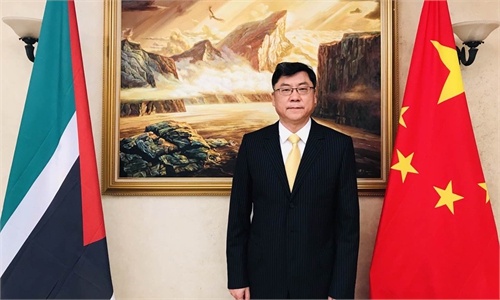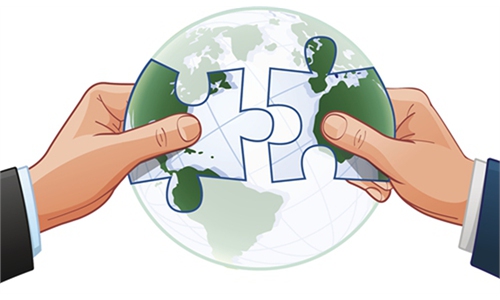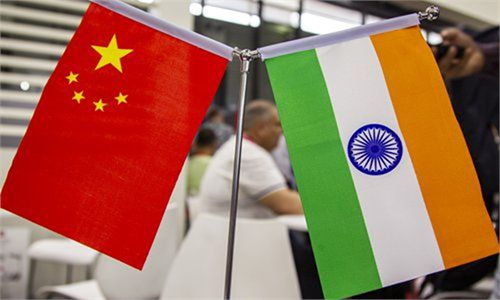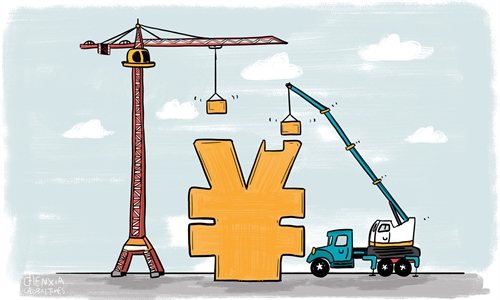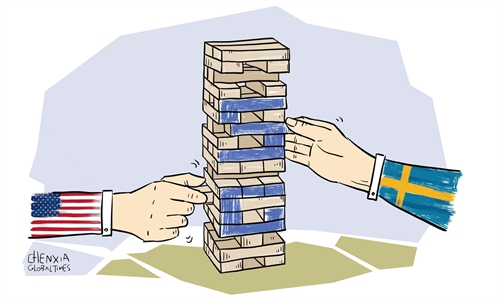China-Japan-SK FTA to speed up with RCEP push
In the wake of the successful signing of the world's largest trade deal - Regional Comprehensive Economic Partnership (RCEP) that encompasses a third of the global economy, a higher level trilateral free trade agreement(FTA) among China, Japan and South Korea is likely to be reached sooner than expected.
G20 summit an opportunity to reach consensus on global vaccine cooperation
The world has been badly hit by the COVID-19 pandemic for nearly a year, bringing an urgent need for global cooperation on virus containment as well as economic recovery. With the upcoming virtual G20 Summit scheduled to start at the weekend, multiple hot topics including cooperation on vaccines have drawn wide expectations.
Where is the US-China economic decoupling heading?
The US-China trade war is not really about trade; it's about technology transfer and decoupling.
Peaceful transition by Trump important for US economy
With little over two months left in the White House, US President Donald Trump - who stands little chance of turning the tide and has seemingly no intention of submitting to a peaceful transfer of power - is reportedly planning to continue with his tough anti-China policies.
Indo-Pacific strategy upholder India misses the bus of RCEP and long-term growth
The signing of the Regional Comprehensive Economic Partnership (RCEP), which covers 15 countries and 30 percent of the global economy, undoubtedly offers a driving force for the involved economies to regain growth momentum to struggle out of the COVID-19 mire and win advantages during the post-pandemic era.
China-Mozambique cooperation yields numerous benefits
Despite extreme weather and the novel coronavirus epidemic, China and Mozambique's bilateral cooperation under the Belt and Road Initiative (BRI) has deepened, stabilizing Mozambique's economic situation, strengthening Mozambique's economic resilience and boosting market confidence.
Australia should take concrete steps to mend China relations
It's hoped that Australia can continue to pursue an independent and friendly policy toward China and take concrete actions to repair bilateral relations.
Chinese investments grow in ASEAN as economic ties deepen
Despite the deadly novel coronavirus hitting the global economy, China and members of the Association of Southeast Asian Nations (ASEAN) have seen economic exchanges heat up, including surging trade and investment flows, which maintain the momentum for further rosy growth based on deepened bilateral economic ties.
Globalization can't go back to the past, nor can the US
Discussions over the possible policies of the new US administration have begun rising. Americans are still internationalists at heart, and they don't support isolationist foreign policy, Robert Zoellick, a former World Bank president, wrote in a recent opinion piece.
Biden entering White House may facilitate WTO's regaining of function
With over 270 Electoral College votes, Democratic presidential candidate Joe Biden was projected to be the winner of the 2020 US presidential election. The relatively multilateralism-inclined politician has draw expectations worldwide that he may reverse Trump's blow for multilateral mechanisms, including World Trade Organization (WTO) and its crucial Appellate Body.
China's pork consumption set to be double that for the EU, while interest in meat alternatives grows
Despite the impact of COVID-19 and African swine fever, China's appetite for meat is showing no sign of slowing down. The country is the world's largest consumer of meat by some margin, with citizens expected to eat 40.3 million metric tons of pork in 2020, according to the United States Department of Agriculture (USDA).
Cold-chain traceability to favor industry's sustainable growth
Amid China's firm and effective prevention of the epidemic, continuously emerging positive novel coronavirus tests related to cold-chain imports have alerted Chinese consumers, and raised further requirements for food security from foreign suppliers, including a sound traceability system and stricter inspection.
India shouldn't rush to exclude Chinese players for 5G roll-out
Indian Home secretary Ajay Kumar Bhalla said that New Delhi was yet to make a decision on whether to allow Chinese telecom companies to participate in the upcoming 5G network construction in India, the Times of India has reported.
Normal industrial adjustments under 'dual circulation' strategy should be viewed objectively
As China seeks industrial self-reliance, economies including Malaysia, Singapore, Thailand and Chile will face losses due to losing market share in China, Reuters reported, citing a recent report by Euler Hermes, a credit insurance company under Allianz.
Upcoming SCO summit an opportunity for India to repair economic ties with China
The 20th Meeting of the Council of Heads of Member States of the Shanghai Cooperation Organization (SCO) will be held virtually on Tuesday, and is expected to solidify member states' consensus on coping with regional and global challenges amid the COVID-19 pandemic. It could also serve as a turning point for escalating China-India tensions due to border issue and deteriorating economic and trade relations soured by India's decoupling moves.
China's 'dual circulation' policy isn't 'turning inward'
Since China rolled out a new development pattern featuring "dual circulation," there have been voices hyping concerns that the Chinese economy is "turning inward," and even interpreting the enhancement of internal circulation as "closing doors" to the global market. These claims are groundless and lack any basic foundation in economics.
Further trade decline possible if Australia keeps undermining Chinese importers' confidence
Amid reckless efforts to sabotage relations with China, certain Australian politicians have used every opportunity to slander China through politicizing economic activities. Recent setbacks to its exports to China have touched the nerves of these impenitent anti-China forces, including Chinese customs' inspection of the metal content of lobsters imported from Australia, which is a normal clearance step to ensure food security.
Sweden should stop bullying Chinese tech with 'security' guise
Swedish authorities have announced restrictions on Chinese 5G developers from joining the country's 5G network construction, under the unproven but catch-all guise of "national security" concerns. Such a move, siding with the US' anti-China campaign, will inevitably lead to damage to its economic and trade relations with China and put Swedish firms' businesses in China at risk.



